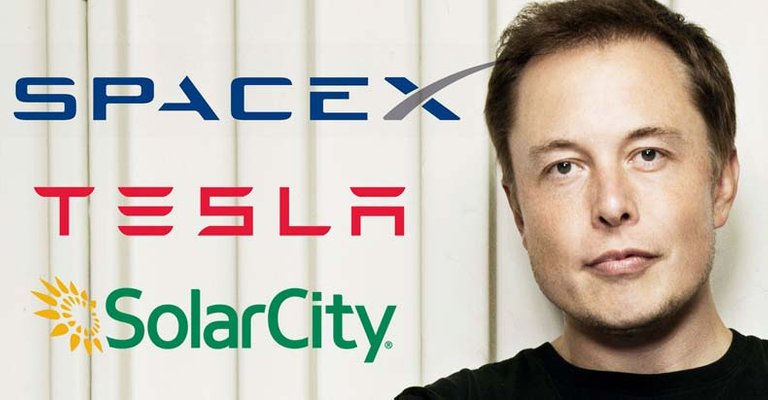
We can not know how many volumes will be made if the ideas of Elon Musk, who produces the world's best electric automobiles and makes energy revolutions with one company, and who has set the foundation for the resident life of man on Mars, are collected into a book. But we can start by reading the books that inspired him.
1. Zero to One - Peter Thiel

When Elon Musk founded X.com (later Paypal), he met Peter Thiel. This is one of the books that affected the vision of Elon Musk. A source for entrepreneurial spirits.
The great secret of our time is that there are still uncharted frontiers to explore and new inventions to create. In Zero to One, legendary entrepreneur and investor Peter Thiel shows how we can find singular ways to create those new things. Zero to One presents at once an optimistic view of the future of progress in America and a new way of thinking about innovation: it starts by learning to ask the questions that lead you to find value in unexpected places.
2. The Hitchhiker's Guide to the Galaxy - Douglas Adams

Yes, it's a novel. At the same time, it is the turning point that leads to the young Musk's road map, which struggles with the problems of loneliness and life in adolescence.
The Hitchhiker's Guide to the Galaxy is the first of five books in the Hitchhiker's Guide to the Galaxy comedy science fiction "trilogy" by Douglas Adams (with the sixth written by Eoin Colfer). The novel is an adaptation of the first four parts of Adams' radio series of the same name. Each book in the series is (mostly) a whole story with a beginning and an end; however, the plot (and characters) of every book relies very heavily on the prior books in the series.
3. Structures: Or Why Things Don't Fall Down / J.E. Gordon:

Musk suggested that this book is "really good if you are looking for a light on structural design". It is also a frequent resource at universities.
For anyone who has ever wondered why suspension bridges don't collapse under eight lanes of traffic, how dams hold back--or give way under--thousands of gallons of water, or what principles guide the design of a skyscraper, a bias-cut dress, or a kangaroo, this book will ease your anxiety and answer your questions.
Structures: Or Why Things Don't Fall Down is an informal explanation of the basic forces that hold together the ordinary and essential things of this world--from buildings and bodies to flying aircraft and eggshells. In a style that combines wit, a masterful command of his subject, and an encyclopedic range of reference, Gordon includes such chapters as "How to Design a Worm" and "The Advantage of Being a Beam," offering humorous insights in human and natural creation.
4. Superintelligence: Paths, Dangers, Strategies / Nick Bostrom:

This book, which has not yet been translated into many languages, will expand your knowledge in the light of important statements about the possible threats of artificial intelligence. It is possible to understand why Elon Musk is so cautious about artificial intelligence by starting from this work. Because he's never giving up on the idea of "We have to be very careful about artificial intelligence, because it's potentially much more dangerous than nuclear weapons."
Superintelligence asks the questions: what happens when machines surpass humans in general intelligence? Will artificial agents save or destroy us? Nick Bostrom lays the foundation for understanding the future of humanity and intelligent life. The human brain has some capabilities that the brains of other animals lack. It is to these distinctive capabilities that our species owes its dominant position. If machine brains surpassed human brains in general intelligence, then this new superintelligence could become extremely powerful—possibly beyond our control. As the fate of the gorillas now depends more on humans than on the species itself, so would the fate of humankind depend on the actions of the machine superintelligence.
5.Life 3.0 / Max Tegmark:

This book is one of the few works on "Being a human in the era of artificial intelligence". Musk takes a pessimistic view of the thoughts of artificial intelligence and future-oriented possibilities. It is possible to say that what you read is a huge influence on this issue.
Life 3.0: Being Human in the Age of Artificial Intelligence[1] is a book by Swedish-American cosmologist Max Tegmark from MIT. Life 3.0 discusses Artificial Intelligence (AI) and its impact on the future of life on Earth and beyond. The book discusses a variety of societal implications, what can be done to maximize the chances of a positive outcome, and potential futures for humanity, technology and combinations thereof.
Instead of trying to get rich in the wallets of people like Elon Musk, who is a multi billionaire, we can accomplish most things with care to his habits. Why not to start by reading these books?
The Hitchhiker's Guide to the Galaxy - Douglas Adams
I read this book and it was very very funny. Everyone should absolutely read it. This post include important information. Thank you for shared
You are most welcome. I think I should start reading it as soon as possible, thanks for recommending.